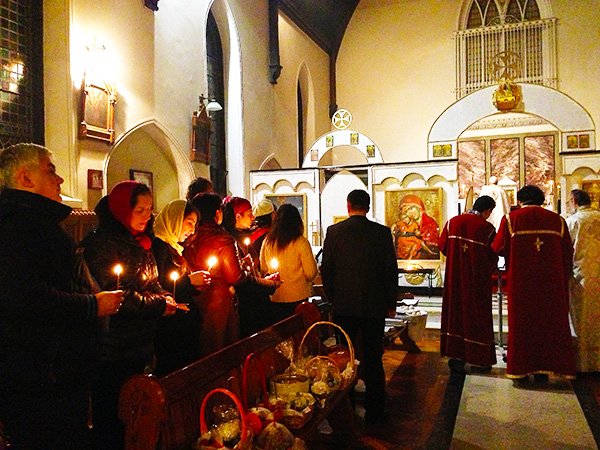The One Mediator
By Fr. Patrick Reardon
All seven of the Church’s Ecumenical Councils have been concerned with a single question: “Who is Jesus?” Indeed, according to the Gospels, Jesus Himself posed this question several times in various forms: “But who do you say that I am?” (Mark 8:29). “What do you think about the Christ? Whose Son is He?” (Matthew 22:42).
The reason this question is important has to do with certain claims of Jesus, which indicate that the answer touches on the nature of God. When Jesus declares, for instance, that He and the Father are one (John 10:30), when He affirms that He is the way, the truth, and the life, and that no one comes to the Father except through Him (14:6), when He claims that those who see Him see the Father (14:9)—in all such assertions, Jesus of Nazareth forces Himself on the conscience of every human being who has ever lived.
The radical nature of these claims implies that their validity concerns the very Being of God and, hence, the meaning of human existence. If these assertions are true, then there really is no God except the God revealed as the Father of this Palestinian carpenter. This is extremely important, because it implies that all other religions are intrinsically idolatrous. The others are but thieves and robbers (10:8). Every other religion is idol worship.
What, after all, is idolatry but the worship of a false divinity? If the true God is known only in Jesus, then only Jesus can save mankind from bondage to false gods. Truly, if Jesus of Nazareth is who He says He is, then He is history’s only safeguard against idolatry. It is either Jesus or the idols. There is no other choice. Hence, the Apostle John, at the end of his brief treatise on the theme of Jesus’ identity, abruptly sums up the alternative: “Little children, keep yourselves from idols” (1 John 5:21).
Taking seriously the claims of Jesus, the New Testament four times speaks of Him as our “Mediator,” our Mesites. Thus, the Apostle Paul calls Him the “one Mediator between God and men, the Man Christ Jesus” (1 Timothy 2:5), while the author of the Epistle to the Hebrews refers to Jesus as “the Mediator of the new covenant” (9:15; 12:24), the “Mediator of a better covenant” (8:6).
Unfortunately, it is currently common to impoverish the meaning of this important word. One even hears nowadays the claim that it is wrong to ask the saints to pray for us, because such a request is at odds with the unique mediation of Jesus. This objection is clearly unfounded, because in the New Testament we constantly find the saints praying for one another.
I do not question for a moment, of course, that our one Mediator “always lives to make intercession” (Hebrews 7:25). The mediation of Jesus, however, is more radical than what He does; it pertains to who He is, which brings us back to the original question: Who is He?
Following the lead of the New Testament, the Church answers this question by saying that Jesus is God’s Son, who assumed our humanity and became thereby the one Mediator between God and Man. This is to say that in the Person of Jesus, both God’s nature and man’s are fixed forever in a unity that prompts us to speak of the God-Man. He joins both forms of existence in His own Person.
Jesus’ mediation means that He is both God rendered visible and Man rendered acceptable. For our salvation, the Church insists, He must be both. Were He only a man, His death on the cross would be unavailing. Were He only God, His resurrection from the dead would have no significance. If we are truly redeemed, He must be both. This argument, primitively outlined in 1 John and the Epistle to the Hebrews, was consistently taken up by the Seven Ecumenical Councils and the bishops who attended those councils.
The Church loves to express Jesus’ mediation in a rhetorical form known as the “communication of idioms,” which means that, because the Person of the God-Man is one, it is theologically proper to speak of what He does in terms of ironic exchange. Thus, we say that God slept in the back of Peter’s boat, and that a Man rose in that boat to command the wind and waves (Mark 4:38–39). God walked into Capernaum, and Man forgave the sins of the paralytic who lived there (2:1, 9). All that we see Jesus doing in the Gospels, He does as both fully God and fully Man, because in Him divinity and humanity are forever joined. He mediates them.












